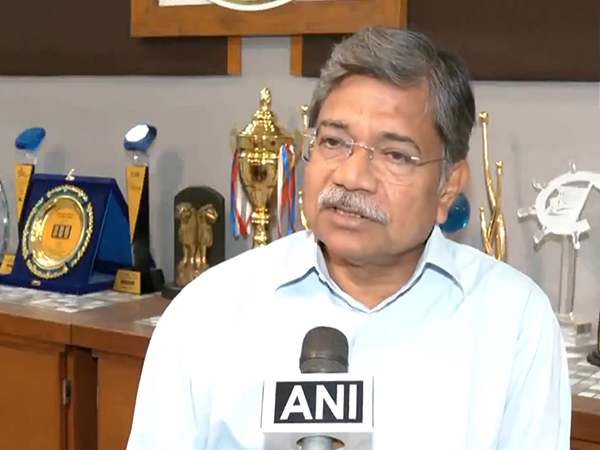Indian Mining and Metals Sector Quest for Renewable Energy Technologies: Industry Experts
Aug 18, 2023

PRNewswire
Mumbai (Maharashtra) [India], August 18: The Federation of Indian Chambers of Commerce & Industry (FICCI), jointly with Hero Futures Energies, yesterday, organized an interactive session on 'Renewable Energy Adoption in Indian Mining and Metals Sector', to showcase renewable energy solutions and technologies for the Indian mining and metals industry and support their transition towards decarbonization and the net-zero journey.
Pankaj Satija, Co-Chair, FICCI Mining Committee and Managing Director, Tata Steel Mining Ltd said, "With the series of initiatives taken by the government, the renewable energy (RE) capacity in India stands at 179GW as of July 2023." He further highlighted that the mining and metals industry along with RE developers are working in a collaborative manner towards the net-zero targets of the industry. He said that innovative sourcing and financing models for RE would support the journey of the metals industry towards decarbonization.
Presenting the Renewable Energy Solutions for Indian Mining & Metals Industries, R Sundar, Business Head – India C&I, Hero Future Energies, highlighted the six energy megatrends, which include SDG and net-zero; RTC; green molecules; cross-border trade; protectionism and energy efficiency. He added that renewable energy solutions are now transiting towards firm renewables (with elements like round the clock energy supply, energy storage, etc.) and green molecules (comprising of green hydrogen, user-producer partnerships, etc.). Sundar highlighted that the pricing of RE solutions for industries like mining and metals is expected to further reduce and mature due to enhanced demand and collaborations.
Animesh Sharma, Head of Business Development – India C&I, Hero Future Energies, highlighted the huge potential for RE in the western region, with a special focus on Maharashtra as it has abundant wind resources, sunshine, a robust grid mechanism and conducive policy frameworks. He further mentioned the encouraging policies within Maharashtra in terms of the ED waiver for 10 years, stamp duty waiver on land for RE projects, single window clearance, etc.
Representing the Steel Industry, Jatin Parekh, Managing Director, Fortran Steel, said that while the decarbonization targets by 2030 may look huge, the industry is taking several initiatives to achieve them. He mentioned that green hydrogen and solar have moved from buzzwords to become the future of the steel industry, while the industry is also setting up its RE capacity by collaborating with the RE developers for captive consumption. He mentioned that with increased adoption of RE, the industry is not only reducing its emissions but also revolutionizing production processes.
For the mining and cement industry, K N Rao, Corporate Head – EHS, AFR, Energy Sustainability, MyHome Industries, highlighted that cement is a unique industry as its carbon intensity is largely derived from its raw materials. He mentioned that around 10 per cent of the India's GHG emissions are from the cement industry and with the increased usage of cement for planned infrastructure development, these emissions could become huge; thus, renewable solutions will play a critical role for the cement industry moving forward. Rao stated that with forecasted cement production of 1400 MTPA by 2050, the year by which the industry hopes to become net-zero, there would be a demand for around 50GW of green power from the industry. He suggested that the policy framework and the approach should be strategized accordingly, both by the RE industry as well as the cement producers, to meet the forecasted demand for renewable solutions in the industry.
Rahul Prithiani, Senior Director & Global Head, CRISIL, made the sectoral presentation and Prof. Viswanathan N Nurni, Professor and Head, Department of Metallurgical Engineering & Materials Science, Indian Institute of Technology, Bombay, highlighted the R&D aspects of the transitional journey of the Indian mining and metals industry towards net zero.
The interactive session highlighted that the role of renewable energy in the mining and metals sector is multifaceted and can have significant impacts on the industry's vision for sustainability and environmental goals. As the sector consumes a significant amount of electricity produced in the country, it can play an essential part in enabling the structural shift to clean power in India. The discussions acknowledged that many corporates and industries in India have committed to adopt green energy and are looking for solutions best suited to their operations.
About Federation of Indian Chambers of Commerce & Industry (FICCI)
Established in 1927, FICCI is the largest and oldest apex business organisation in India. Its history is closely interwoven with India's struggle for independence, its industrialization, and its emergence as one of the most rapidly growing global economies.
A non-government not-for-profit organisation, FICCI is India's business and industry voice. From influencing policy to encouraging debate, and engaging with policymakers and civil society, FICCI articulates the views and concerns of industry. It serves its members from the Indian private and public corporate sectors and multinational companies, drawing its strength from diverse regional chambers of commerce and industry across states, reaching out to over 2,50,000 companies.
FICCI provides a platform for networking and consensus building within and across sectors and is the first port of call for Indian industry, policymakers and the international business community.
(Disclaimer: The above press release has been provided by PRNewswire. ANI will not be responsible in any way for the content of the same)



















